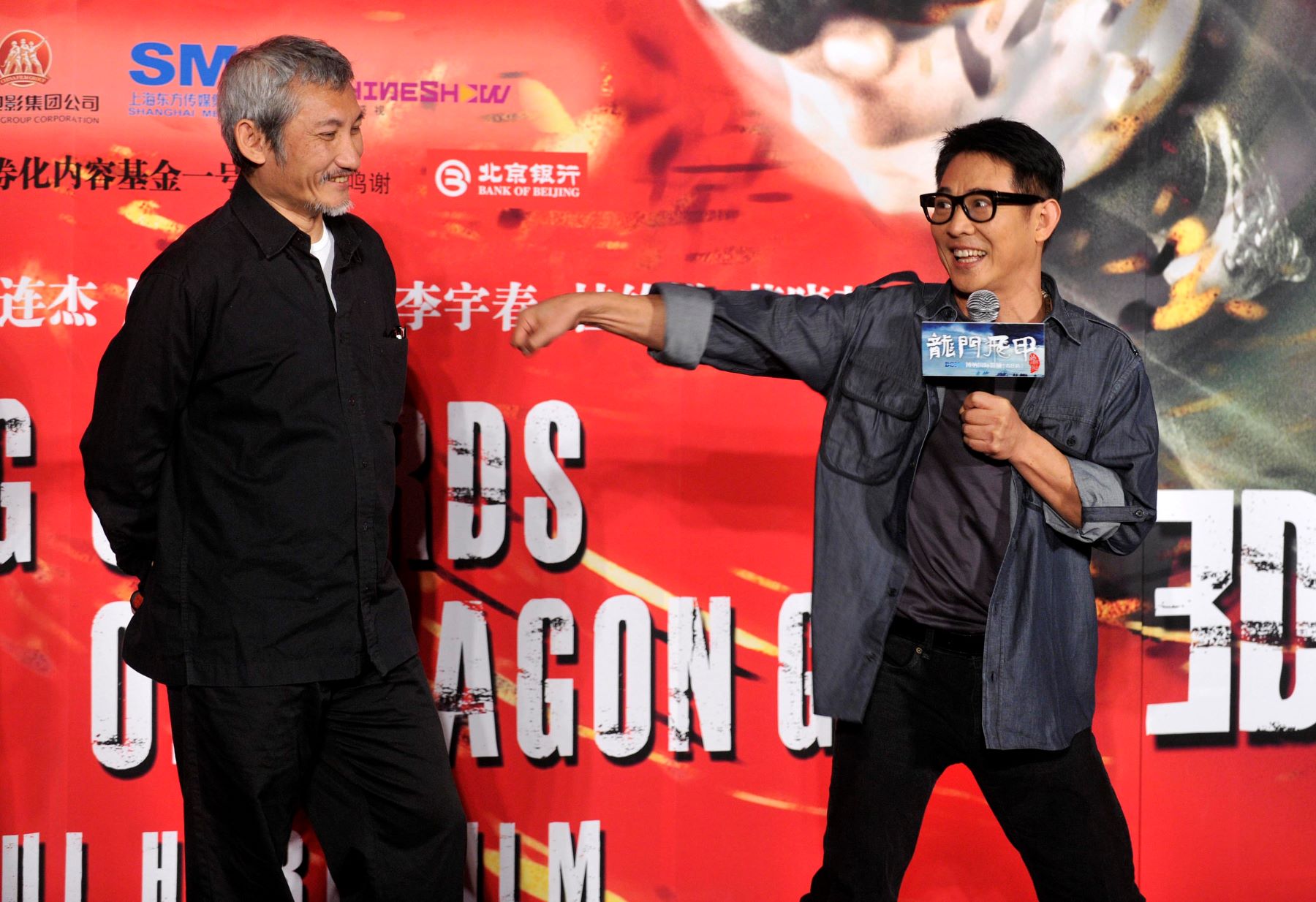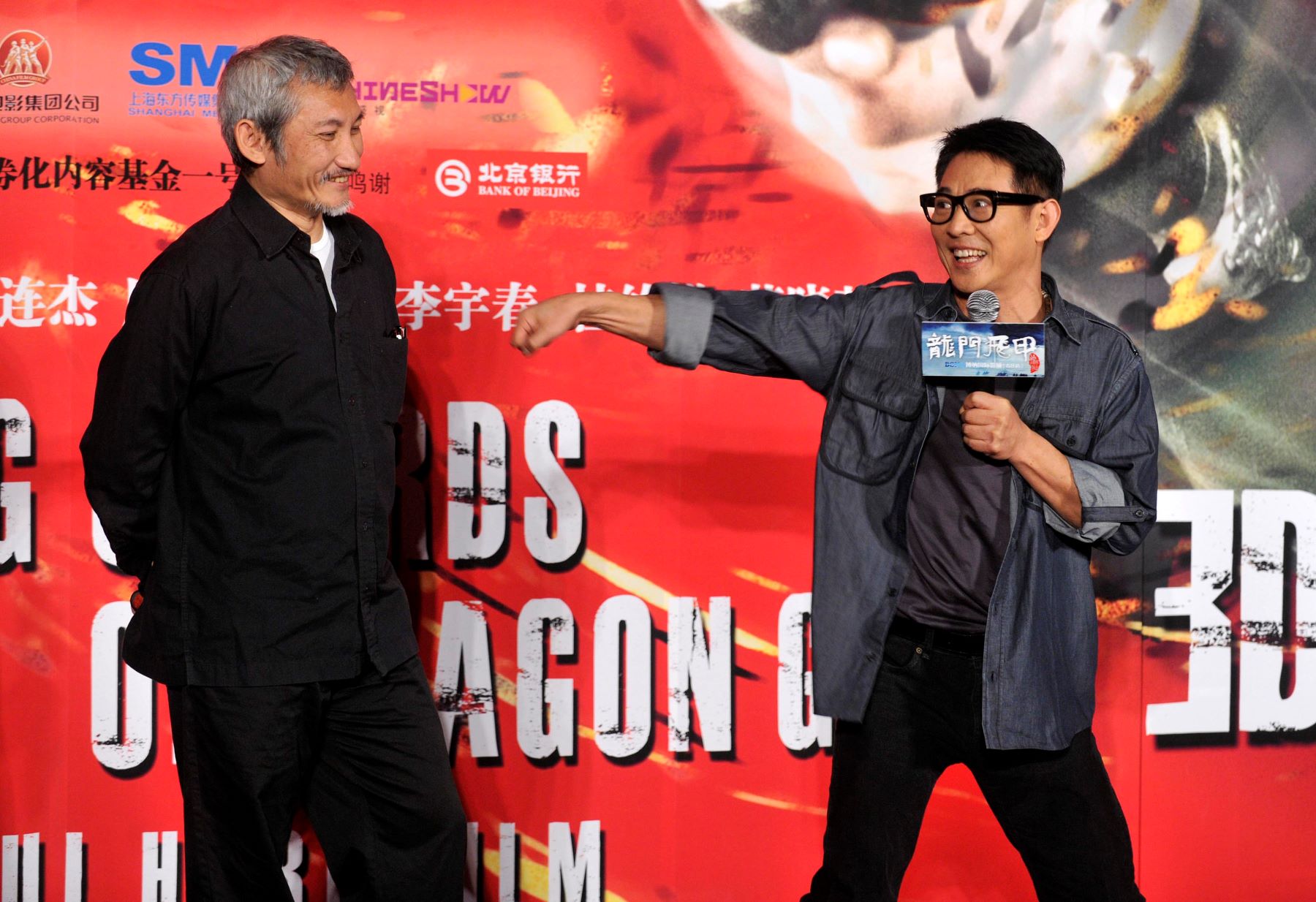
How a Speedy Aircraft Inspired Jet Li’s Iconic Stage Name
For better or worse, the strength of your name can substantially affect your prospects as an actor in Hollywood. If a producer can’t imagine your name at the top of a movie poster, you’ll have a tough time getting a lead role in mainstream movies. Jet Li understands this reality as well as anybody.
The same martial arts skills that made him an action star in the 1990s were apparent before his greatest hits. However, he might have never got those opportunities had he not been convinced to change his birth name to something easier for worldwide audiences to say.
Jet Li was a martial arts prodigy under a different name

As explained on Britannica, Jet Li’s original name is Li Lianjie. He was born on April 26, 1963, in Beijing, China. He and his family spent most of his childhood in poverty after his father’s death when Lianjie was two years old.
Depending on your belief system, he discovered his martial arts talent because of fate’s invisible hand or through total luck. Lianjie signed up for a summer sports program when he was eight and was randomly assigned to a wushu (Kung-Fu) class. His natural aptitude for combat sports quickly made itself known. A year later, Lianjie won an award at the first wushu competition held in China since the Cultural Revolution. As a result, he started to train full-time and joined the renowned Beijing Wushu Team.
In 1974, Lianjie toured the United States as a member of the Chinese National Wushu Team. His skill set was so impressive that when the team performed in front of President Richard Nixon at the White House, Lianjie was personally asked to become Nixon’s personal bodyguard. On his personal website, Lianjie claims he turned it down because he wanted to “defend my one billion Chinese countrymen!” when he grew up.
Lianjie won five straight men’s national championships from 1975 to 1979. He retired from competitive wushu when he was 18 due to a knee injury.
He was a box-office superstar in China and Hong Kong after changing his name
Li Lianjie became Jet Li in 1982. He made his film debut as the lead of Shaolin Temple in 1982. The movie broke box office records in China, set up a franchise with two other movies he also starred in, and is credited with reviving interest in the real Shaolin Temple, considered the birthplace of Chinese martial arts.
When the movie was released in the Phillippines, Lianjie met with a publicity company that asked him to change his name to something non-Chinese speakers could pronounce more easily.
Jet Li wasn’t chosen just because it sounds cool. It also played into his martial arts background and ascendant celebrity. The company compared his career to an airplane because of how quickly he rose to fame, and he was also given the nickname Jet due to the speed and grace of his training with the Beijing Wushu team.
Li starred in several other big hits in his homeland, most notably Once Upon a Time in China, the Fong Sai-Yuk series, and Fist of Legend, a remake of Bruce Lee’s Fist of Fury.
Li’s career in America was less successful
Jet Li made his way to America in 1998, making his Hollywood debut in Lethal Weapon 4 in a rare villainous role. He agreed to do the movie on the promise from producer Joel Silver that he would get a leading role in his next project. That film ended up being Romeo Must Die. The movie made $91 million in theaters, and Li’s performance was praised despite his relative lack of English at the time.
Li hasn’t experienced the same level of success with Western productions, but he still had a few moderate hits. His biggest American movies are The One ($78.5 million at the box office), Kiss of the Dragon ($64.4 million), and Cradle 2 the Grave ($56 million).
He was almost a part of an iconic franchise that brilliantly mixed Eastern and Western influences. Li turned down the part of Seraph in The Matrix trilogy because he disagreed with the production team’s intent to digitize his moves. He also turned down Chow Yun-fat’s role in Crouching Tiger, Hidden Dragon.
Li has slowed down in recent years to focus on charity work and his family. His last wushu film was 2006’s Fearless, and his last movie of any genre was Disney’s live-action remake of Mulan. His legacy has given Li a net worth of $250 million, according to Celebrity Net Worth.


